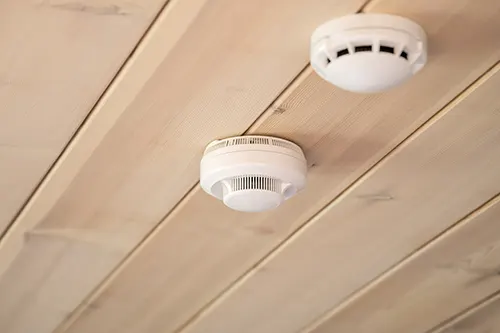
Pests in a rental property can cause conflict between tenants and landlords.
Below is a helpful guide to pest management in rental properties for landlords and property managers. Questions about who is responsible (and should pay) for pest control and how to tackle a pest infestation, protect your property and save money are answered below.
Pest management – an issue that can’t be swept under the carpet
When you are a landlord or a property manager, sooner or later, you’ll be contacted about the presence of pests on your property. Regardless of who is responsible for the pest infestation, it’s crucial to address the situation quickly. If left unchecked, pests can cause structural damage to the property, recurrent complaints by tenants, possible turnover of renters, loss of revenue, and health issues for people and their pets.
Is pest control a landlord’s or tenant’s responsibility?
In rental properties, the landlord or property manager is responsible for pest control unless they can prove the tenant caused the infestation. However, each state has different legislation that you should refer to before turning down your tenants’ requests or taking legal action against them. You should also check if there was a pest control clause in the lease agreement you could enforce.
The landlord or property manager is responsible for keeping common areas in a clean and safe condition. Organizing rubbish bin collections and large pick-ups are part of the property owner’s responsibilities. Failing to keep the common areas free of rubbish can be used as ammunition by tenants, as unsanitary and untidy conditions can attract and harbor pests.
Who pays for pest control, the landlord or the tenant?
Once you have determined who is liable for pest control, the tenant or the landlord, the responsible party should cover the financial costs. If the landlord can prove that the tenants’ living conditions are responsible for the infestation, the bill falls to the renters. However, since time is of the essence, it’s better to cover the costs first and sort out the financial issue later if the tenants push back on paying for the extermination.
Preventative pest control in multi-family buildings is often an expectation and responsibility of HOAs and condo associations. If a pest control plan for the building isn’t in place, the tenants will likely use this to void any financial responsibility. So, if you manage or own an apartment block or large building, sign up for a regular pest control plan to safeguard your property and your finances.
Can you evict a tenant for causing a pest infestation?
In most U.S. states, you cannot evict a tenant on the grounds of being responsible for a pest infestation. You can charge them for the pest control intervention and issue a “notice to comply or quit” to warn them that they are in violation of the lease agreement and will be evicted if the situation isn’t fixed.
Check your State Laws, but, generally speaking, you will need to go to court and prove that living conditions are causing a health hazard or extensive property damage to evict a non-compliant tenant. As a landlord or property manager, you should consider alternative solutions to litigations first, as you will likely resolve the issue in a shorter time frame.
What to do if your tenants report a pest infestation in the rental property?
So, you just received a distress call from a tenant reporting ants, bed bugs, cockroaches, or other unsightly pests. What should you do next?
Can you take matters into your own hands?
If you are the building superintendent, property manager, or landlord, your first reaction might be to exterminate the critters yourself, but you would be breaking the law by doing so.
There are specific regulations and laws around the use of pesticides in all settings, including residential properties. A person may only apply pesticides to the individual dwelling unit (e.g., house or apartment) in which they reside unless they are a certified commercial applicator. You should call a professional pest control company as soon as possible.
Organize a professional pest control visit
Regardless of who is responsible, your first action should be eradicating the pest. Always be prepared to front the bill for pest problems, so they are resolved quickly. A good rental property expense budget should always include preventative maintenance and emergency measures to avoid nasty surprises when fighting pest infestations.
During the process, keep the tenant informed of the progress in witing. This way, if there is any dispute later on regarding the timeliness of your actions or communications, you will be standing on solid footing.
How much time does a landlord have to take care of a pest infestation?
It’s essential to act swiftly once you have been notified of a pest problem in your rental property. You should at least book the visit from a pest control company within one to two days. If you take too long, your tenant can take actions such as withholding rent, moving into temporary housing, or breaking the lease.
Even if you think you shouldn’t be paying for it, it is best to be proactive about the infestation.
Source: Hawkspestcontrol.com




